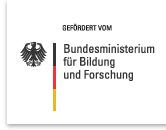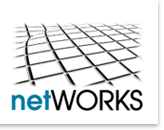Socio-ecological regulation of network-related infrastructure systems: example of water
(November 2002 – March 2006)
What was analysed?
Water and energy provision, wastewater disposal, telecommunications and public transport represent infrastructural fields which are crucial to the development of cities and regions. However, these fields are undergoing numerous changes. The most significant changes concern the structure and level of demand, political frameworks, property relationships, and available system alternatives.
For many years now there has been intensive discussion in the political sphere regarding the organisation and quality of basic municipal services. The emphasis on water management in this debate illustrates the special demands and notions arising around water issues. On the other hand, the case of water management raises fundamental questions concerning the relation between market and government, with an emphasis on community versus individualisation.
The conceptual starting point
The changes occurring in infrastructure systems are defined by the research group as "socio-ecological transformation". This demonstrates a conscious effort to analytically comprehend the vast spectrum of changes and reflect their often far-reaching impact on both business and society as well as on the natural environment. On the basis of findings which have been compiled during the three-year dialogue between research and practice, the netWORKS association was able to contribute to resolving the cross-cutting issues concerning the socio-ecological regulation of impending transformation processes.
Sustainable management of municipal service concepts
In Germany, due to historical reasons, it is the municipalities’ responsibility to operate water supply infrastructure. Furthermore, municipalities view its provision as an essential duty in order to guarantee basic public services. Until now they have been extremely successful at fulfilling this task on their own or by an array of cooperation models. However, the challenges which municipalities are currently facing are immense. In this context it needs to be discussed how the quality of municipal services can be guaranteed and further boosted under changing framework conditions. In other words: How can the provision of water supply services be guaranteed in the long term while taking into account the following aspects: Firstly, the safety and quality of the water supply as well as its universal availability need to be ensured. Then, prices need to be maintained at a level which is socially responsible and which nonetheless covers the system costs involved when providing this service. Furthermore, prices should provide an incentive for those operating the facilities to invest in the systems' operational capacity. How can the system be organised in such a way that it is able to adapt to changing conditions?
The aim of the project
netWORKS sets itself the goal to elaborate proposals on how to shape this transformation and on how to guide this transformation towards sustainable development. Central to this endeavour was municipalities' scope for formative action. On the one hand, netWORKS aimed to provide municipalities with system knowledge which would enable them to recognise and deal with the challenges ahead. Thus, the interconnected effects arising from changing framework conditions needed to be identified. On the other hand, the project was designed to provide cities and municipalities with easier access to the relevant knowledge about transformation processes and target knowledge in order to enable them to shape their supply and waste management systems adequately for the future.
A transdisciplinary approach in order to tackle a complex issue
The complexity of the problem and its social relevance had an significant impact on the methods, the research process and on the composition of the research group. Addressing the problem adequately required the involvement of a range of academic disciplines as well as decision-makers from politics, local administration and business. This was achieved by working in cooperation with partners from varying specialist backgrounds:
-
Economics was handled by the Regional Planning and Environmental Research Group (ARSU), Oldenburg, which investigated the transformation of water management's regulatory framework and business strategies in water management.
-
Municipal engineering, represented by the Chair for Municipal Engineering at the Institute for Urban Planning and Landscape Architecture at Brandenburg Technical University Cottbus (BTU), which compared conventional and alternative system solutions.
-
Resources management and ecological aspects (resource regulation), represented by the Institute for Social-Ecological Research (ISOE), Frankfurt am Main, which studied current issues in the field of drinking water resource management and regulation.
-
Municipal studies, represented by the German Institute of Urban Affairs (Difu), Berlin, which focused its research on changes in the provision of municipal services, and
-
Spatial science, represented by the Institute for Regional Development and Structural Planning (IRS), Erkner, near Berlin, which analysed the changing spatial references of network infrastructure systems.
Handbook on municipal strategy formulation
The project's findings have been compiled in a handbook (only available in German) with a focus on municipal practice. This handbook aims to provide support for municipal decision-makers in Germany facing strategic decision-making procedures which deal with network infrastructure systems. It is designed to assist municipalities in reaching strategic decisions and, as such, aims to strengthen municipal competencies. The integrated strategy formulation approach within the netWORKS handbook does not attempt to address the problem from the perspective of one particular discipline or administrative department. Instead it tackles the issue by conducting an interdisciplinary analysis and making interdepartmental recommendations for action in consultation with numerous players. The handbook poses key questions concerning decision-making, highlights the scope for action and constraints, illustrates the impact of municipal action strategies on the basis of models, and, above all, demonstrates the processes and instruments of transition management.
Transformation of Network-related Infrastructure: Strategies for municipalities based on a trial with water systems
Publishers: Thomas Kluge, Jens Libbe,
Difu-Beiträge zur Stadtforschung Bd. 45, 2006 (only available in German)


